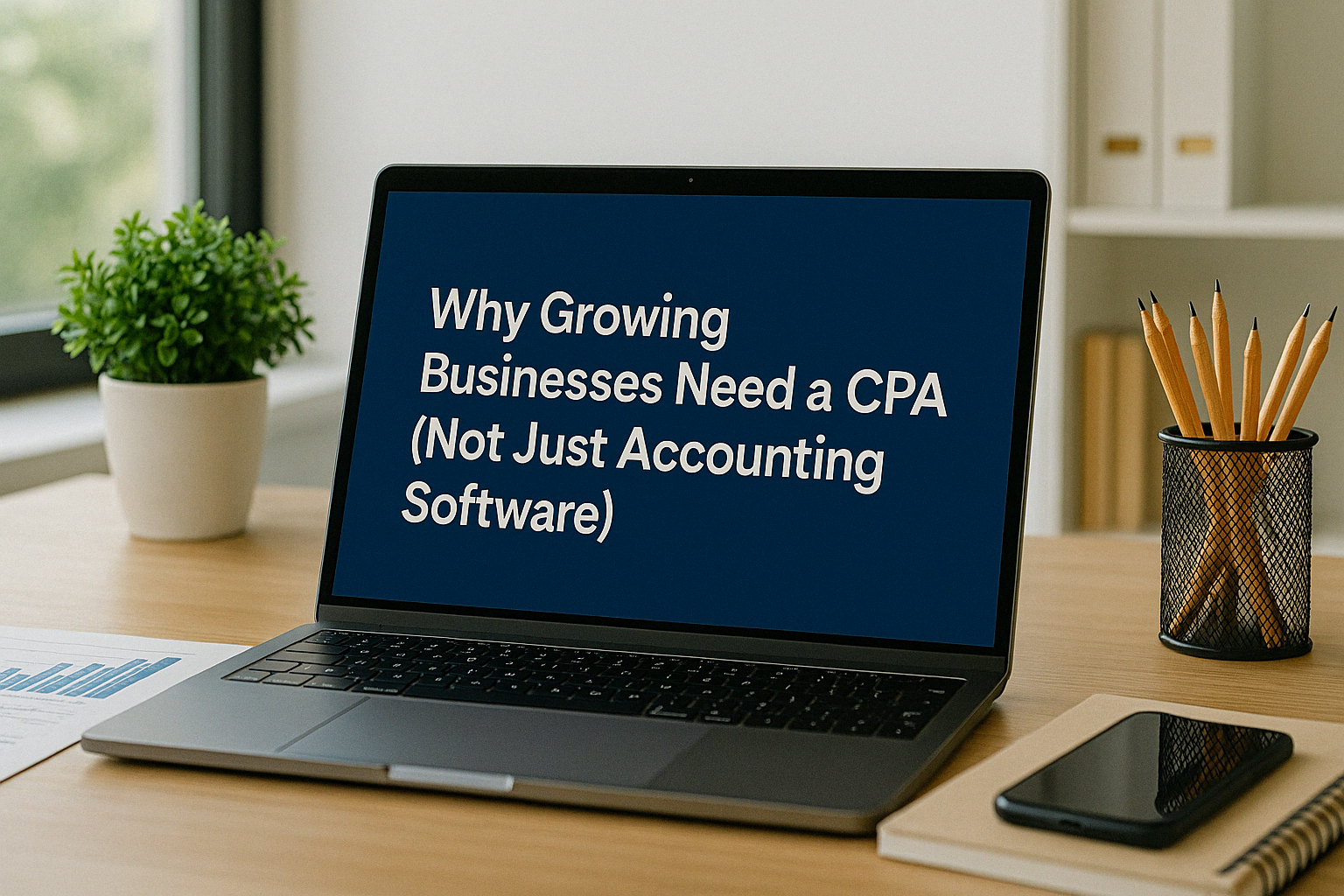Tax Compliance for Home Healthcare Businesses: Avoiding Costly Mistakes

Running a home healthcare business is rewarding, but let's be real—navigating the financial side can feel like wading through a swamp. At Straight Talk CPAs, we get it. You're focused on providing top-notch care, and the last thing you need is a tax headache.
That’s why understanding tax compliance is super important. We want to help you steer clear of costly mistakes that can drain your resources and energy. So, let’s dive into some key areas: payroll tax, contractor classification, and business structure to keep your home healthcare business on the right track.
Understanding Payroll Tax
Alright, let’s break down payroll tax. It's more than just cutting checks—it’s about withholding the right amounts and paying them on time. Messing this up can lead to penalties and interest faster than you can say "IRS audit."
✔ Withholding: You’ve gotta withhold federal and state income taxes, Social Security, and Medicare taxes from your employees’ paychecks. Use the latest IRS guidelines to make sure you're withholding the correct amounts—nobody wants a surprise tax bill at the end of the year!
✔ Paying On Time: Set reminders, use accounting software, or even hire someone to manage your payroll. The IRS isn't known for its patience.
✔ Form W-2:
If the aide is classified as an employee, you as the aging adult or support network must file a Form W-2 and provide a copy to the employee.
Contractor Classification: Employee or Independent?
This is where things often get tricky. Deciding whether your home health aides are employees or independent contractors can feel like a legal maze. Misclassifying them can lead to serious tax trouble.
The Difference Matters:
✔ Employees are subject to payroll taxes, while independent contractors aren’t. You don’t withhold taxes from contractors; instead, they’re responsible for paying their own self-employment taxes.
✔ The IRS Test: The IRS looks at three main factors to determine classification:
- Behavioral Control: Do you control when, where, and how the aide performs their tasks?
- Financial Control: Do you control the business aspects of their job, like expenses and investments?
- Relationship: Is there a written agreement? Are benefits provided? Is the relationship permanent?
Real-Life Example:
✔ If you dictate the aide’s schedule, provide training, and reimburse expenses, they’re likely an employee.
✔ If the aide sets their own hours, uses their own equipment, and works for other clients, they’re likely a contractor.
✔ When in Doubt, Ask: File Form SS-8 with the IRS to get an official determination of worker status. It’s better to be safe than sorry.
Business Structure Considerations
Your business structure affects your tax obligations. Choosing the right one can save you money and protect your assets.
✔ Sole Proprietorship: Simple to set up, but you’re personally liable for business debts. Profits are taxed as individual income.
✔ LLC (Limited Liability Company): Offers liability protection. Profits are taxed as individual income unless you elect to be taxed as an S corp.
✔ S Corp (S Corporation): Can reduce self-employment taxes. You’ll pay yourself a reasonable salary, and the remaining profits are distributed as dividends.
✔ C Corp (C Corporation): More complex, with double taxation (corporate tax and individual tax on dividends). Usually not the best choice for small home healthcare businesses.
Example:
Let’s say you’re running your home healthcare business as a sole proprietorship and earning a good amount. Switching to an S corp might save you thousands in self-employment taxes. But remember, you’ll need to factor in additional costs for accounting and payroll.
Other Important Tax Tips
✔ Home Office Deduction: If you use part of your home exclusively for your business, you can deduct a portion of your home expenses. This includes mortgage interest, property taxes, and utilities.
✔ Mileage Deduction: Track your mileage when you use your personal vehicle for business purposes. The standard mileage rate can add up quickly.
✔ Health Insurance Premiums: As a home care agency owner, you can deduct 100% of the cost of health insurance premiums for yourself and your employees.
✔ Stay Updated: Tax laws change all the time. Subscribe to IRS newsletters, follow tax blogs, and work with a tax professional to stay informed.
Final Thoughts
Tax compliance might seem daunting, but it doesn’t have to be. By understanding payroll tax, contractor classification, and business structure considerations, you can keep your home healthcare business on solid financial ground.
And remember, Straight Talk CPAs is here to help. We specialize in accounting for home healthcare businesses and can provide customized solutions to meet your specific needs.
Contact us today! Don’t let tax worries distract you from providing exceptional care to your clients!
Discover Your Tax Savings Score in Minutes!


Salim is a straight-talking CPA with 30+ years of entrepreneurial and accounting experience. His professional background includes experience as a former Chief Financial Officer and, for the last twenty-five years, as a serial 7-Figure entrepreneur.




